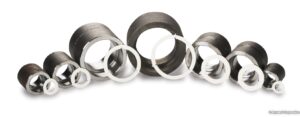Hoses: Essential Tools for Industrial and Commercial Applications
Hoses are indispensable tools in various industries, playing a critical role in the transportation of fluids, gases, and other materials. Whether in construction, agriculture, or manufacturing, the right hose can make all the difference in ensuring efficiency, safety, and optimal performance. In this article, we will explore the different types of hoses, their applications, and how to choose the best hose for your specific needs.
What Are Hoses?
A hose is a flexible tube designed to carry fluids or gases from one location to another. Hoses are used in countless applications, ranging from household tasks like watering plants to complex industrial processes requiring the transport of chemicals, oil, or air. Depending on the material, design, and intended use, hoses can vary in size, strength, and flexibility.
Types of Hoses
- Rubber Hoses: Rubber hoses are among the most versatile and durable hoses available. They are commonly used in industrial, agricultural, and automotive applications. Rubber hoses offer excellent flexibility, resistance to high temperatures, and the ability to withstand abrasive environments.
- PVC Hoses: PVC (polyvinyl chloride) hoses are lightweight, cost-effective, and suitable for applications that require a high degree of chemical resistance. PVC hoses are commonly used in the construction industry for handling water, air, and various fluids.
- Hydraulic Hoses: Hydraulic hoses are specifically designed to carry hydraulic fluids under high pressure. These hoses are typically made from reinforced materials to ensure they can handle the extreme pressure of hydraulic systems, making them essential in heavy machinery and construction equipment.
- Air and Water Hoses: Air and water hoses are primarily used for transferring air, water, or other fluids in general-purpose applications. These hoses are often used in automotive, agriculture, and construction industries and are designed for flexibility, durability, and ease of use.
- Industrial Hoses: Industrial hoses are built for heavy-duty applications, where high-performance standards and durability are required. These hoses are used in sectors such as oil and gas, mining, and manufacturing to handle extreme pressure, high temperatures, and aggressive chemicals.
- Food and Beverage Hoses: Designed specifically for the food and beverage industry, these hoses are made with non-toxic materials and are easy to clean. Food and beverage hoses ensure that there is no contamination of the products being transported, which is crucial for compliance with health and safety standards.
Applications of Hoses
Hoses are used in a wide range of industries and applications. Some of the most common uses include:
- Agriculture: Hoses are used for irrigation, transporting pesticides, fertilizers, and water.
- Construction: Hoses are used to transfer concrete, water, and air for various construction tasks.
- Automotive: Hoses are essential for cooling systems, fuel lines, and brake systems.
- Manufacturing: Hoses are used to move materials such as chemicals, oils, and gases in factories and plants.
- Food and Beverage: These hoses ensure the safe transport of liquids, syrups, and other products without contamination.
Benefits of Using the Right Hose
- Durability: High-quality hoses are built to last, even in challenging environments. Investing in durable hoses reduces the frequency of replacements and ensures consistent performance.
- Safety: The right hose prevents leaks and failures, which could lead to dangerous situations, especially when dealing with chemicals, high-pressure fluids, or flammable materials.
- Versatility: Depending on the material and design, hoses can handle various fluids, gases, and temperatures, making them suitable for numerous applications across multiple industries.
- Efficiency: Using the right hose ensures that fluids or gases are transported quickly and effectively, optimizing workflows and reducing downtime in industrial processes.
How to Choose the Right Hose
When choosing a hose for a specific application, consider the following factors:
- Material Compatibility: Ensure the hose material is compatible with the fluid or gas being transported.
- Pressure Rating: Choose a hose that can withstand the pressure requirements of the application.
- Temperature Resistance: Consider the operating temperature range of the hose to ensure it can perform effectively in hot or cold conditions.
- Flexibility and Durability: Depending on the application, you may need a hose that offers greater flexibility, durability, or both.
Conclusion
Hoses are crucial components in a wide array of industrial, commercial, and household applications. From transporting water and air to moving chemicals and hydraulic fluids, hoses are versatile tools that enhance performance, safety, and efficiency. Whether you need a hose for simple irrigation tasks or heavy-duty industrial applications, choosing the right hose is essential for ensuring optimal results and long-lasting performance.





















